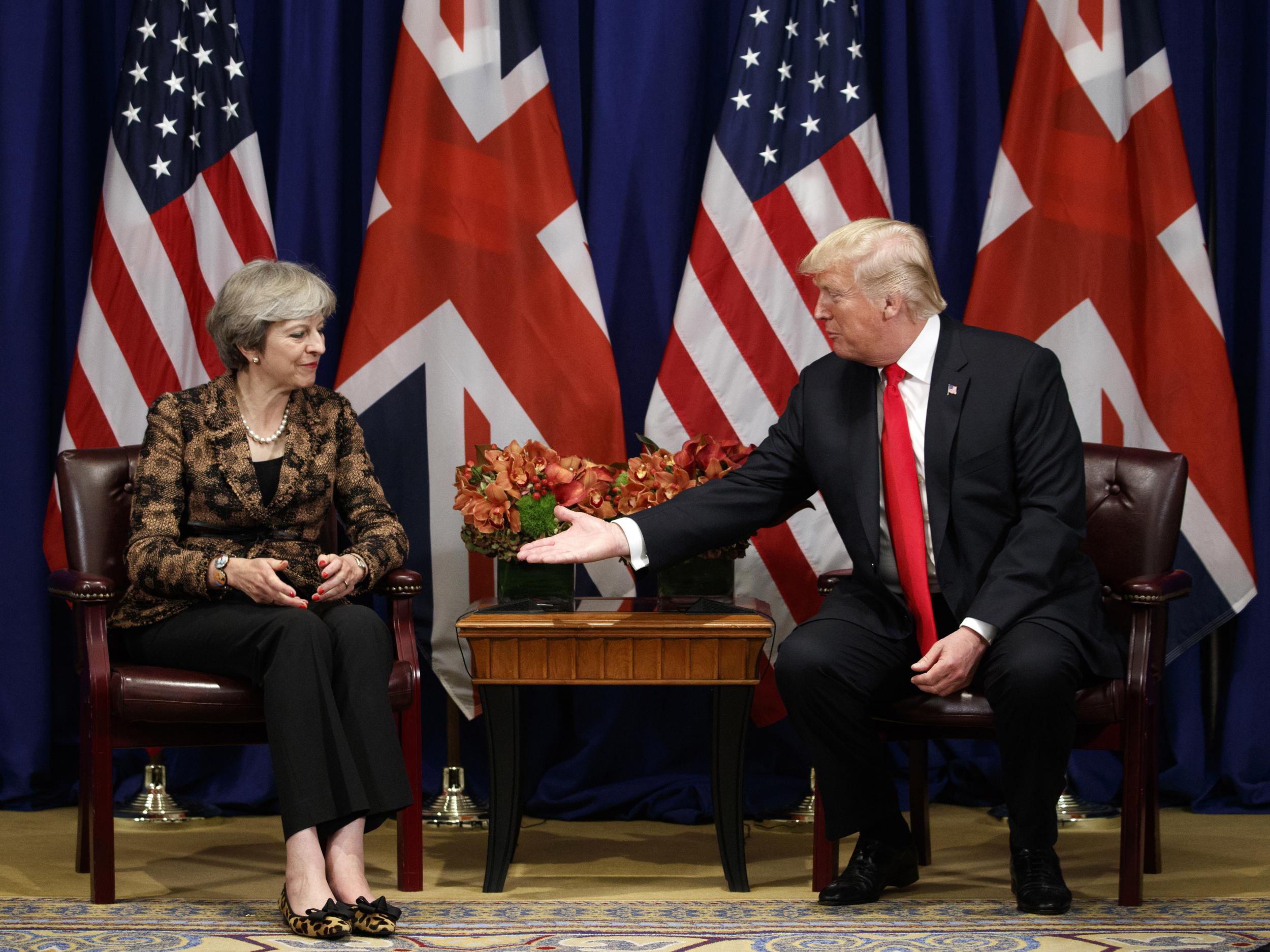Donald Trump vowed to ‘Make America Great Again’ – and Bombardier shows he doesn’t care who he tramples on to make that happen
There is a political dimension to this as well as a legal one. Canada has hinted that it may cut imports of military equipment from the US, and Sir Michael Fallon has started to make similar threats


Americans talk about free trade but when a foreign competitor starts eating their patch they quickly find a way of putting up the barriers – and they don’t mind who gets caught in the crossfire.
That at least will be the reaction of most people outside of the US to the 220 per cent tariff ruling by the US Commerce Department on the C-Series aircraft built by the Canadian company, Bombardier. US latent protectionism, they will feel, has been boosted by its new President. And of course the reaction in the US is quite the reverse: foreigner companies use unfair subsidies to steal from the American market and have to be stopped.
“We are going to fight for every last American job,” Donald Trump said on his first visit as President to a factory – the Boeing Dreamliner plant in Charleston, South Carolina. Boeing is the chief US competitor to Bombardier, and while vastly larger it has reacted badly the sale of 75 of the C-series to Delta Airways. It has claimed that the planes were sold at “absurdly low prices”, which could only be achieved thanks to the subsidies from the Canadian, Quebec and British governments. We in the UK are involved because of support to Bombardier’s plant in Northern Ireland, the largest manufacturing employer there.
This story will rumble through the US courts and in all probability will end up with a final ruling next year. Meanwhile here is some background.
First, all governments help aircraft manufacturers in one way or another. This could be through defence contracts at favourable prices; it could be launch aid for specific projects; it could be help in getting lucrative export deals, or a score of other forms of support, from help in building new plants though to training and research grants. This is a very grey area, and what is fair and what is not fair depends on the perspective of the viewer.
Second, Bombardier is in trouble as a company. Aircraft are about half its turnover and its new C-Series brings it into direct competition with Boeing and Airbus. Before that it focussed on making smaller regional and executive jets, where its main competitor was Brazil’s Embraer. (Its ultra-long-range Global Express executive jets are the preferred mode of transport of much of the entertainment aristocracy, including Oprah Winfrey, Celine Dion and Stephen Spielberg.) The company took a gamble on the C-Series, the largest versions of which will seat upwards of 150 people, and arguably the financial pressure of this project has starved the rest of the company of resources. Further, the latest and largest versions of the place have not been selling as well as hoped.
Third, Canada’s trade relationship is not all sweetness and light, despite the close political and other ties, the North American Free Trade Agreement or indeed the huge amount of cross-border trade that has taken place long before NAFTA was thought of. There has been a big and on-going row about timber, which has flared up again this year. (Donald Trump threatening a 20 per cent tariff on lumber imports.) There are tussles over dairy products, with Canada protecting its domestic industry. So the two countries have form. This is just the latest bout of a surprisingly touchy relationship.
There is, however, an established procedure for dealing with NAFTA disputes. Under Chapter 19 of the agreement, Canada, the United States and Mexico can take subsidy or dumping decisions before a panel and be bound by its judgement. This procedure is not invoked very often, but it does exist.
Finally, there is a political dimension to this as well as a legal one. Canada has hinted that it may cut imports of military equipment from the US, and Sir Michael Fallon, our Defence Secretary, has started to make similar threats.
For those of us who believe passionately in free trade, the great driving force behind the rise in global living standards over the past half-century, seeing supposedly friendly countries making threats at each other is not good. It is tempting to see this dispute in the context of the UK leaving the EU and needing to do deals with other countries, but it is more sensible to recognise it for what it is: one of a series of challenges to freedom of trade that we have had in the past and will have in the future. If it were to herald a general retreat into protectionism, it would be a disaster. I don’t think it will, be we should all be right to be worried.

Join our commenting forum
Join thought-provoking conversations, follow other Independent readers and see their replies